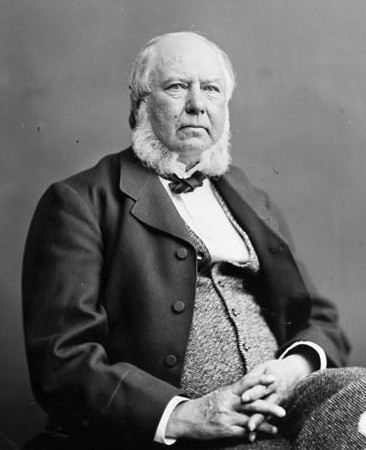
The Right Honourable Sir William Johnstone Ritchie: A Pioneer in Canadian Jurisprudence
Section 48, Lot 35
Early Life and Education William Johnstone Ritchie was born in Annapolis, Nova Scotia, on October 28, 1813. He graduated from the Pictou Academy and went on to study law in Halifax under the guidance of his brother, John William Ritchie. In 1837, Ritchie was called to the bar of Nova Scotia, and the following year, he moved to Saint John, New Brunswick, where he was called to the bar of that province.
Personal Life In 1843, Ritchie married Martha Strang, the daughter of a shipping merchant from St. Andrews, Scotland. Tragically, she passed away in 1847, leaving behind a daughter and son. In 1856, Ritchie married Grace Vernon Nicholson, with whom he had twelve children—seven boys and five girls.
Political Career Ritchie was elected to the Legislative Assembly of New Brunswick in 1846, representing Saint John. He honored his pledge to resign if a fellow Liberal candidate failed to win a by-election, stepping down in 1851, only to be re-elected three years later. In 1855, Ritchie left politics to accept an appointment to the Supreme Court of New Brunswick, and a decade later, he was named Chief Justice of New Brunswick.
Supreme Court of Canada On September 30, 1875, Ritchie was appointed to the newly formed Supreme Court of Canada. He and his large family relocated from New Brunswick to Ottawa. On January 11, 1879, Ritchie was appointed Chief Justice of the Supreme Court of Canada, a position he held for seventeen years until his death. During his tenure on the Supreme Court, Ritchie played a pivotal role in shaping the foundational jurisprudence of Canada. His leadership was instrumental in navigating the early years of the court, establishing key legal precedents that would guide the development of Canadian law. Key Cases and Contributions
- Citizens Insurance Co. v. Parsons (1881): This landmark case involved the division of powers between the federal and provincial governments. Ritchie’s judgment in this case helped clarify the scope of federal and provincial legislative powers under the British North America Act, setting important precedents for the interpretation of Canada's constitutional framework.
- Reference re the Public School Act of Manitoba (1890): Ritchie was influential in cases that dealt with minority rights and education. His opinions in this context reflected a commitment to balancing provincial autonomy with the protection of minority rights, which remains a critical aspect of Canadian constitutional law.
- McCarthy v. Whitman (1882): Ritchie’s ruling in this case addressed the issue of property rights and set significant precedents for property law in Canada. His decisions often emphasized the importance of clear legal principles and the protection of individual rights.
Ritchie was known for his thorough and meticulous approach to legal interpretation. His judgments often reflected a deep understanding of the law's complexities and a commitment to ensuring justice was served. His tenure saw the court's establishment as a crucial arbiter of Canadian law, ensuring that the new nation had a strong and independent judiciary.
Honours and Cultural Involvement Ritchie was knighted on November 1, 1881, with the honor made retroactive to May 24 of that year. On March 5, 1884, he was appointed deputy to the Governor General, Lord Lansdowne. In addition to his judicial duties, Ritchie was active in cultural activities in Ottawa. He served as President of the Ottawa Art Association in 1882-83, an organization he helped establish in 1879. He also had a keen interest in building and architecture.
Later Years and Death After a protracted illness, Sir William Johnstone Ritchie passed away on September 25, 1892, in Ottawa. His contributions to Canadian law and his involvement in cultural activities have left a lasting legacy.
Sir William Johnstone Ritchie remains a respected figure in Canadian legal history, remembered for his dedication to justice and his pioneering role in the nation's highest court.


